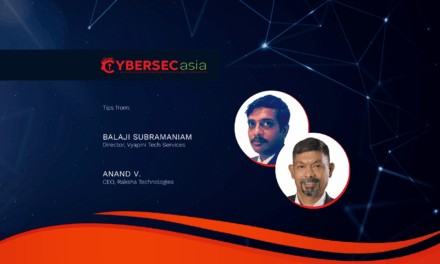Sustainability, resilience, cyber threats, data privacy, job-role redefinitions and other cloud/AI-related issues will be making this year an intense, memorable journey.
In 2024, the AI divide will be deepening. What is the result of C-suites that chose to invest — or ignore — AI investments? There will be a new class of “have-nots” that operate at status quo while the AI-savvy gain surges in productivity thanks to teams that are equipped with efficiency-creating AI tools.
Across industries, I expect that this divide will solidify the leaders and brands that can navigate the torrents of the economic landscape and come out on top, today and through the coming years.
Here are my other predictions:
-
‘Cloud captors’ are in for a rude awakening
IT teams are being squeezed by shrinking budgets and cloud environments that are growing endlessly with complexity. Amid the chaos in the Cloud, platforms that promote connectivity and observability will edge out their competitors, while those that hold data captive on their platforms will not survive.
-
Supply chain challenges are about to get much worse
As AI continues to proliferate, supply chain challenges will become insurmountable — thereby worsening global supply chain woes. Businesses will have no choice but to lean into software optimizations, focused on training more task-focused models from foundational models to reduce the computational footprint required, and make solutions more achievable with smaller compute footprints.
-
Sustainability will step back into the spotlight
The AI hype cycle significantly slowed sustainability efforts in 2023, and it is a trend that is unsustainable as we go into 2024. So, sustainability will need to step back into focus, with a dedicated commitment (from individuals to entities) on reducing the electrical power we consume: to save power for others in our data center regions and ensuring that we are scaling efficiently for the years to come.
-
There will be no AI without storage
There is no AI without the data to train and infer. Being able to own and manage your own data so you can find the compute you need where you need it has become even more critical. We will continue to see large spikes in the use of storage, and businesses will focus on efficient and effective ways to store data responsibly, so they can get the most out of it while staying compliant in the midst of increased regulations.
-
The AI knowledge gap between security professionals will empower threat actors
Whether or not the usage of AI is giving attackers a leg up is the wrong question to be asking. AI is here to stay, so the right question is: whether or not security leaders possess the skills required or will invest the time to upskill and learn how to handle the AI revolution. Both harnessing the power of this technology and defending against it, hinges on the ability to connect the conceptual to the tangible. If the security industry fails to demystify AI and its potential malicious use cases, 2024 will be a field day for threat actors.
-
The AI arms race will officially commence
Organizations of all types are aggressively adopting and relying on AI models to carry out critical business functions. Moreover, organizations are leaning heavily on AI to maintain a competitive edge. As with any technology that becomes a crucial piece to an organization’s success, it will increasingly become a top target for threat actors to inflict significant damage. Organizations rushing to join this revolution without the proper precautions put in place are opening themselves up for model tampering and breaches that will impact everything from critical care, banking systems, power grids, etc.
-
The only way to fight against AI is with AI
Defending against AI ultimately means defending against all recorded human knowledge. Security pros are in the era of AI-powered infinite information — and will face both benefits and challenges that have never seen before. Sometimes the best way to mitigate attacks is by going back to the foundational elements of detection and mitigation by AI, against AI.
-
Renewed aims to enhance data privacy and compliance
In an age where AI models are trained on reams of data, data privacy has become even more important, and the calls for scrutiny are warranted. Organizations will be called upon to leverage AI to enhance data privacy through data anonymization, encryption, anomaly detection, and privacy-preserving ML techniques like differential privacy and tokenization. Data compliance with AI also ensures the data owners retain ‘the right to be forgotten’.
-
Tackling more deep fakes on social media and the mass media
While deep fakes have been around for years, today’s versions are more realistic than ever. Untrained eyes and ears cannot discern what is fake… and trained eyes and ears will also fail to identify deep fakes.
-
Achieving resilience will be a key focus
In 2024 the number one concern of organizations will be resilience. Organizations will be hyper vigilant of the steps they can take to remain protected. Responsible disclosure will be a critical pillar in upholding resilience: no matter the priorities or style of the CISO. Security leaders will begin the mindset shift towards turning incident management, patching, and evolving security protections into standard operational procedures.
-
Surging AI bills ahead
As AI experimentation skyrockets, so will AI bills. Developer teams will be required to answer for this AI spend: CFOs will not accept unbounded and unpredictable costs for much longer, and there will be added pressure to prove the return on investment. Tools offering insights, guardrails, and monitoring — especially in experimentation — are going to be critical for every development team’s AI arsenal.
-
Software development roles will be redefined by AI
As AI excels in code generation, frontend developers must redefine their role to showcase creativity and unique skills that AI still lacks. Established frameworks will still hold an edge over newer ones, so developer choices will shape the job market in 2024 and influence evolving software development processes.

















